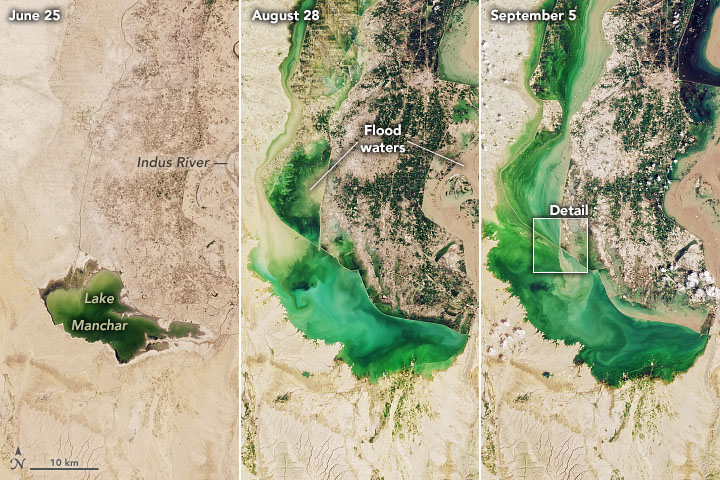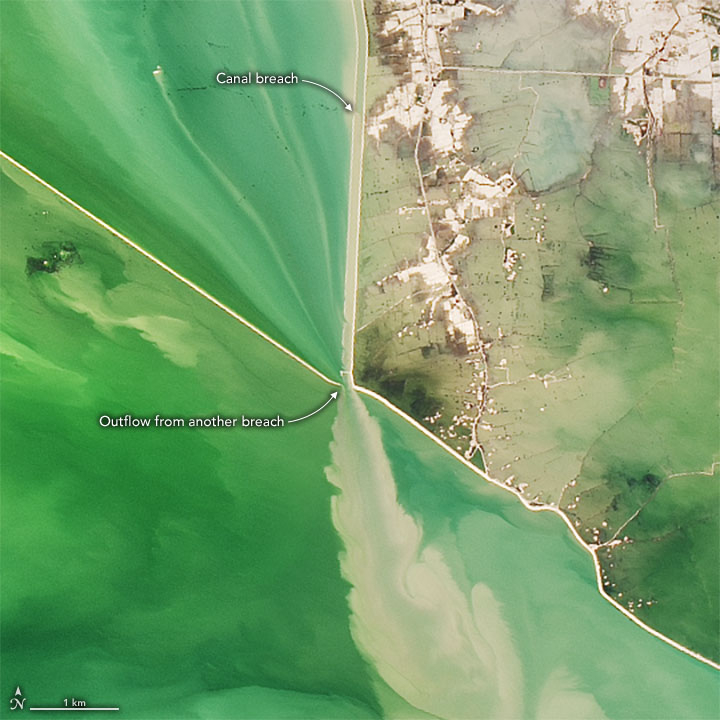Published on 7 September 2022
Drenched by extreme summer monsoon rains, Pakistan has faced its worst flooding in a decade. According to the country’s National Disaster Management Authority, more than 1,300 people have died and thousands more have been injured. Hundreds of thousands more have been displaced by the extreme flooding that has destroyed more than 1 million homes.

3 Landsat images showing the evolution of the Indus River floods and their effects on Lake Manchar, from 25 June to 5 September 2022.
25 June 2022 (Landsat 9)
28 August 2022 (Landsat 9)
5 September 2022 (Landsat 8)
The natural-color images on this page were acquired by the Operational Land Imager (OLI) aboard Landsat 8 on June 25, August 28, and September 5, 2022. The detailed image (below) shows breaches of the Main Nara Valley Drain, a canal that connects Lake Manchar (visible in the lower part of the image) to Lake Hamal, which lies about 160 kilometers (100 miles) to the north.

Detail image from 5 September 2022
The lake lies west of the Indus River in Sindh province, one of the hardest hit by flooding. Sindh has so far this year received more than five times its average rainfall.
With many water systems damaged, government authorities and international relief agencies are concerned about safe access to drinking water, food insecurity, sanitation, and public health. On August 30, the Pakistani government declared a national emergency and, with the United Nations Office for the Coordination of Humanitarian Affairs, called for international aid for humanitarian relief efforts.
Acknowledgments
- Article taken in its entirety from NASA's Earth Observatory website.
- NASA Earth Observatory images by Joshua Stevens, using Landsat data from the U.S. Geological Survey. Story by Sara E. Pratt.